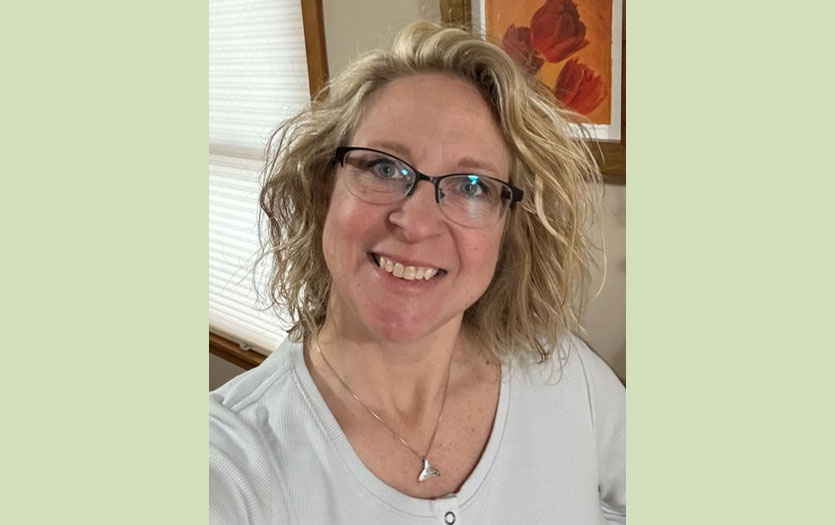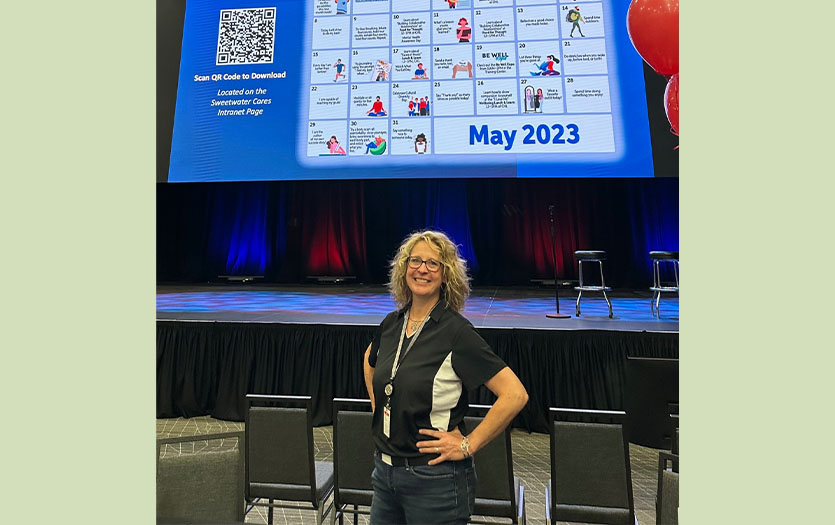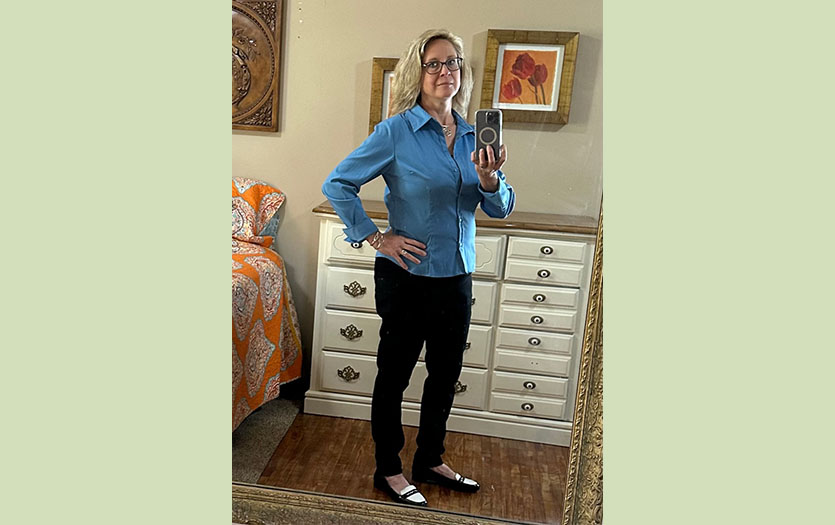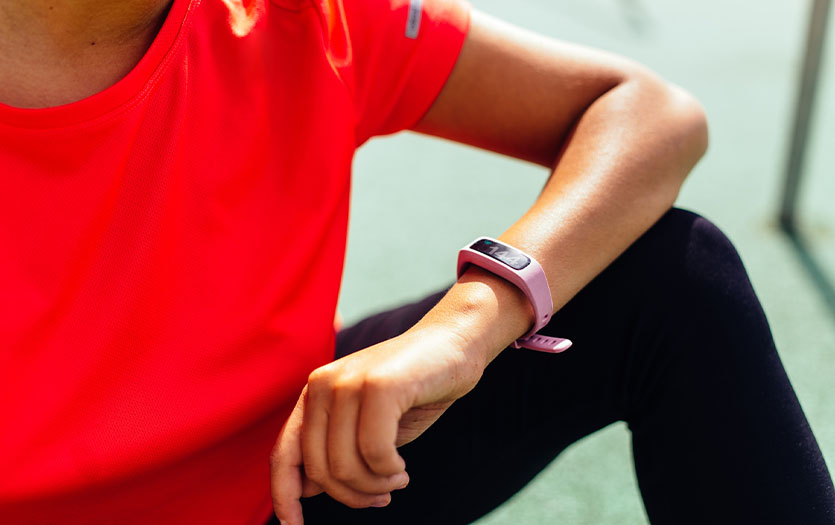
Last month, Ryan Singerman, DO, PPG – Weight Management & Bariatric Surgery, walked us through the benefits and considerations for patients considering the use of weight loss medications. As a follow-up, we spoke to Angela Raymer MBA, program coordinator, Parkview Heart Institute, who found success using these prescription medications in tandem with other healthy lifestyle shifts. She shares what inspired her to explore this option, why it worked and the important lessons she’s learned along the way.
What prompted you to go to PPG – Weight Management?
After several years of experiencing a variety of life stressors, I had neglected my personal health, both physical and mental. I lost my father, and during my mourning, I began emotional stress eating, and it simply continued as I leaned more and more on food as a part of emotional expression. In addition to the weight gain, my blood pressure went up, and I was riddled with guilt. I have worked in the Parkview Heart Institute for nearly 20 years. I know how to read food labels and to consume proper nutrition. I know how to exercise. But I also recognized that I was developing an unhealthy relationship with food. I felt controlled by it.
At the time, I had a 10-minute drive home from work that I referred to as “the gauntlet.” Not only was massive road construction taking place for months on end, but there were nearly 10 fast food places that I had to navigate past. I could not do it! I tried eating my lunches later. I tried making meals in the slow cooker so they were ready as soon as I got home. Nothing I did could break the grip that food had on me. It wasn’t that I was actually hungry. I likened it to what an addict must experience. I would physically ache and was driven to satisfy the urgent need to eat.

I am pretty easy-going, and I noticed that the only time I exhibited anything close to road rage was in a drive-thru lane, when the person ahead of me wasn’t paying fast enough. What really made this clear for me was that calm that came over me with the first bite. Such relief. Simply biting into whatever I had ordered provided a rush that calmed that overwhelming anxiety. I realized I am a food addict. And that’s when I reached out for help.
What were your expectations versus your actual experience?
I went into this experience hoping for the best but expecting to simply hear all the same messages I’ve heard repeated my entire life. “Eat less and move more.” “Eat fewer carbs.” “You need better discipline.”
However, during my first consultation, I was brought to tears because of how understood I felt. It was the first time that anyone had ever validated my feeling of being addicted to and irrationally controlled by food. It was the first time that anyone had ever explained that weight management is so much more complex than just eating less and exercising more. It’s just not that simple. Did you know that over 400 hormones contribute to, not only our body’s metabolism for using the calories we consume, but also the sensation of being hungry and the feeling of being satisfied or full?
What were your primary methods for losing weight?
From the very beginning, I was always a part of creating my treatment plan. First, we restricted my calories and tried to increase activity. I struggled—and they listened! Chronic Achilles tendon injuries prevented me from increasing my activity, so my calories were cut further. But sticking to the calorie count was a nightmare with a cravings monster living inside of me and very little program support at home.

That is when we began introducing medications to control the cravings and binging. There are a variety of medications that are used for a multitude of individual circumstances. When we found the one that was right for me, I was astonished by how freeing it was to not be preoccupied by food. I even became more social at family functions, as I was more engaged in the conversations instead of my typical feeding frenzy.
How did you feel about using medications to lose weight?
I did not like the idea at first, because I had assumed that my only options would be super stimulants that would make me feel horrible. Once I understood how hormones can impact variables that contribute to weight gain or prevent weight loss, I was very agreeable to incorporating them into my plan.
A diabetic is not ashamed because they may need to take insulin. I am not ashamed to take a medication that addresses hormones that are telling me I’m hungry when I have no reason to be or failing to tell me I’m full until I feel painfully sick. It’s actually a relief to take the medications and know that it is not a lack of willpower or poor self-discipline that’s the problem.
How do the medications impact your efforts to lose weight?
For me, the medications keep me from fixating on food. They allow me to focus on other tasks and distract me from eating out of boredom or habit. My appetite is suppressed in a way that I am able to notice when I am genuinely hungry and am no longer interested in continuing to eat when my body is appropriately “full.”
What would you say to a person who is thinking about taking a prescribed weight loss medication?
I would encourage them to work through a weight management program to be sure that what they consider taking is safe for them and interacts well with their other medications. There are so many diseases tied to obesity. Using a medication to help with weigh loss can result in eliminating the need for some of the other medications you may be taking. (My blood pressure medication dosage has dropped from 40mg to 2.5mg).
I’d also advise them to work with the medications. You have to give them a chance to work for you. That means if the medication is suppressing your appetite, don’t just eat out of habit. And work with your medical provider. If you are struggling with the medication, tell them. They can and will change your dosage or try a different medication.
How many pounds have you lost and how long did that take?
I am so proud to claim my 70-pound weight loss! The “how long” part of this question is difficult. I am not your ideal, compliant patient. I began this journey in 2019. I struggled to get on board and often gave in to providing meals that my partner liked. Progress was very minimal and slow in the beginning. Then, we experienced the COVID pandemic, which was a challenge.

In 2021, I actually arrived for an appointment with every intention of quitting the program. I didn’t want to be a failure. I had not lost any weight and felt completely defeated. This is when my weight management nurse practitioner became my hero. She put aside the usual clinical questions and spoke with me more personally. She let me know that simply maintaining my weight during that time of international crisis is a success that most of her patients could not claim. Not only did she retain me as a patient, but she resolved my breakdown, addressed my mental health, encouraged me to refill my medications and put me on an orthopedic path that led to surgical repair of my tendon.
The real momentum began in the spring of 2022, when I set a goal to be down 50 pounds by the time I turned 50. I met that goal in July last year and have lost an additional 20 pounds in the year since then!
How do you feel today in comparison to when you started this journey?
I honestly feel 10 years younger. Between not carrying around an extra 70 pounds and getting that Achilles tendon repaired, I am so much more active. I feel completely unstoppable. It has also done wonders to stop beating myself up over something that was never in my control.
This journey has no end. There are no “bad” days or “cheat” days. There are just some days that have more calories in them than others and the key for me is to just keep those days to a minimum.
To learn more about medical weight loss with PPG – Weight Management & Bariatric Surgery, explore our informational seminars, fill out this form or contact us at 260-425-6390.



